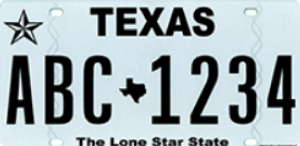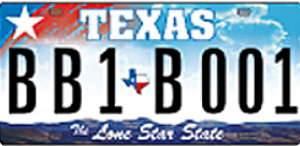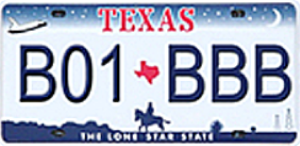A license plate lookup is a helpful way to get important information about vehicles and their owners. In Texas, where the Department of Transportation reported more than 22 million registered vehicles in 2023, this process is especially useful.
License plate lookups provide details such as vehicle history, accident records, and vehicle issues. With traffic crash statistics showing 4,283 fatalities and 15,219 serious injuries in 2023, knowing how to perform a Texas license plate lookup is important for drivers.
Why Run a License Plate Search in Texas?
Running a license plate search in Texas serves various important purposes, including:
- Verify ownership for used car purchases
- Identify suspicious vehicles in neighborhoods
- Aid law enforcement in crime investigations
- Locate hit-and-run drivers
- Recover stolen vehicles
- Check vehicle history before rental or loan
- Support insurance claim processes
- Enforce parking regulations
- Assist in amber alert situations
- Enhance road safety by spotting uninsured vehicles
- Confirm vehicle registration status
- Research the accident history of a vehicle
- Validate information provided by sellers
- Track down vehicles involved in traffic violations
- Support legal proceedings related to vehicles
Is it Legal to Perform a License Plate Lookup in Texas?
In Texas, vehicle records are considered public information under the Texas Public Information Act. However, access to personal or restricted information is limited by the federal Driver's Privacy Protection Act (DPPA) and state privacy laws, which balance public access with individual privacy rights.
The Texas Department of Motor Vehicles (TxDMV) oversees the release of vehicle information. Individuals can access certain restricted vehicle information for specific permissible purposes outlined in the DPPA and Texas Transportation Code, Chapter 730. These include:
- Government agency functions, including law enforcement
- Motor vehicle safety, theft, emissions, recalls, or research activities
- Use in legal proceedings or anticipated litigation
- Insurance claims investigations and underwriting
- Towed or impounded vehicle notifications
- Licensed private investigation or security services
- Operation of private toll transportation facilities
- Consumer reporting agencies for permitted purposes
Misuse of personal information obtained through license plate lookups in Texas carries severe penalties under Texas Penal Code Section 32.51. The offense is classified based on the number of items of identifying information misused:
- Less than five items: State jail felony
- 5 to 9 items: Third-degree felony
- 10 to 49 items: Second-degree felony
- 50 or more items: First-degree felony
Penalties increase to the next higher category if the offense was committed against an elderly individual or to facilitate certain sex offender registration violations.
How Can You Conduct a Texas License Plate Lookup?
To conduct a Texas license plate lookup, individuals can use the following resources:

Texas Department of Motor Vehicles (TxDMV)
Start by visiting the official TxDMV website. This site offers a range of resources, including information on vehicle registration, title transfers, and other motor vehicle services. Look for any services related to license plate lookups.
If there is no current online service that allows individuals to obtain vehicle information using a license plate, call the TxDMV customer service hotline. The representatives can provide guidance on how to conduct a license plate lookup and explain any necessary steps or documentation required.
Individuals can also visit TxDMV Regional Service Centers for in-person assistance. These centers offer same-day and next-day appointments, making it convenient to obtain the needed information. When visiting, bring any relevant documentation to facilitate the lookup process.

Approved NMVTIS Data Providers
The National Motor Vehicle Title Information System (NMVTIS) is an essential tool in protecting consumers from fraud and unsafe vehicles while also aiding in the prevention of title fraud and other crimes. Several approved NMVTIS data providers offer services to individuals seeking vehicle information using license plates.
GoodCar.com, InfoTracer, Recordsfinder.com, and StateRecords.org are among the reputable NMVTIS-approved providers. These platforms allow users to access comprehensive vehicle histories, including title information, theft records, and accident reports. By entering a license plate number, individuals can obtain valuable insights into a vehicle's background.
These services are particularly useful for potential buyers of used vehicles, as they can reveal important details about a car's past that might not be immediately apparent. While fees may apply, the information provided by these NMVTIS data providers can help make informed decisions about vehicle purchases or verify the status of a particular vehicle.
What Information Can You Obtain from a Texas License Plate Lookup?
When conducting a Texas license plate lookup, individuals can access various types of information. Below is a comprehensive list of possible search results available from both basic and comprehensive reports.
Basic License Plate Lookup Information
A basic license plate lookup typically provides the following data:
- The manufacturer or brand of the vehicle (e.g., Ford, Toyota)
- The specific model name or number of the vehicle (e.g., Camry, F-150)
- The year the vehicle was manufactured
- Classification of the vehicle (e.g., sedan, SUV, truck)
- Information on whether the vehicle is a front-wheel drive, rear-wheel drive, or all-wheel drive
- The type of transmission the vehicle uses (e.g., automatic, manual)
- Details about the engine, including size and type (e.g., V6, hybrid)
- The recommended price set by the manufacturer when the vehicle was new
Comprehensive License Plate Lookup Information
A more detailed report can provide in-depth information, including:
- Records of ownership changes
- Designations indicating vehicle issues (salvage, rebuilt, lemon status)
- Details on significant accidents involving the vehicle
- Recall information, including reasons and repair status
- Report on all accidents, specifying minor or major collisions
- History of theft and recovery status
- Checks for financial interests or debts tied to the vehicle
- Indication if the vehicle was used commercially
- Verification of mileage and potential tampering flags
- Reports on damage from severe weather or events
- Comprehensive details about the vehicle's specifications
- History of sales listings and transactions
- Compliance with U.S. regulations affecting functionality
- Insights into maintenance, including inspection and registration records
What Does a Texas License Plate Look Like?
Texas standard license plates have evolved over the years, with the current design known as "The Texas Classic." Introduced in July 2012, this design prioritizes public safety and visibility.
It includes two highly visible security threads embedded within the plate material, enabling law enforcement to more easily verify authentic plates. The plate displays black letters and numbers on a white background, with "TEXAS" prominently displayed across the top.
Previous designs included the "Lone Star Texas" plate, introduced in 2009, which featured full-color graphics and a seven-character alphanumeric combination. Before that, the "Panoramic Texas" plate, launched in 2000, showcased various Texas icons such as a cowboy, space shuttle, and oil derrick.
The state no longer automatically replaces plates after seven years, but vehicle owners can request replacements if needed for cosmetic or readability reasons at their county tax office.
The Texas Classic

Lone Star Texas

Panoramic Texas


License Plate Types in Texas
In Texas, aside from standard plates, residents can choose from other license plate types.
Specialty license plates are available for personalization, allowing vehicle owners to express their individuality for an additional fee. Additionally, Texas offers souvenir plates designed solely for decorative or gifting purposes. These plates are not street-legal.
Furthermore, state law authorizes the TxDMV to provide digital license plates for specific eligible vehicles, including commercial fleets of at least 25 non-apportioned vehicles, those owned by governmental entities, or vehicles that are not passenger vehicles.
Frequently Asked Questions (FAQs)
Check out these FAQs to better understand the license plate lookup process in Texas:
Can I Look Up TX License Plates for Free?
Individuals can look up Texas license plates for free through the TxDMV website or approved NMVTIS data providers. By entering the license plate number, users can access basic information about the vehicle. However, a fee may be required to obtain more detailed vehicle history reports.Do All Texas License Plate Lookups Work for Custom or Personalized Plates?
Not all Texas license plate lookups work for custom or personalized plates. While basic information can typically be accessed for standard and specialty plates, data available on custom plates may be restricted due to privacy concerns. It is essential to check with the TxDMV or authorized providers for specific information regarding personalized plates.How Long Does a Typical Texas License Plate Lookup Take?
A typical Texas license plate lookup is usually processed instantly online. Users can access basic vehicle information within seconds by entering the license plate number on the TxDMV website or through approved NMVTIS providers. However, obtaining more detailed reports may take longer and could require additional processing time, especially if fees are involved.Can I Perform Bulk License Plate Lookups in Texas?
Bulk license plate lookups can be performed in Texas, but they typically require access to specialized services. Users should contact the TxDMV directly for details on requirements, fees, and the process for bulk lookups.Are There Any Alternatives to a License Plate Lookup for Obtaining Vehicle Information in Texas?
There are alternatives to a license plate lookup for obtaining vehicle information in Texas. Individuals can request motor vehicle records from the appropriate state agency or utilize the title check service provided by the TxDMV. Additionally, approved NMVTIS data providers offer VIN (Vehicle Identification Number) lookups for more detailed vehicle information.
